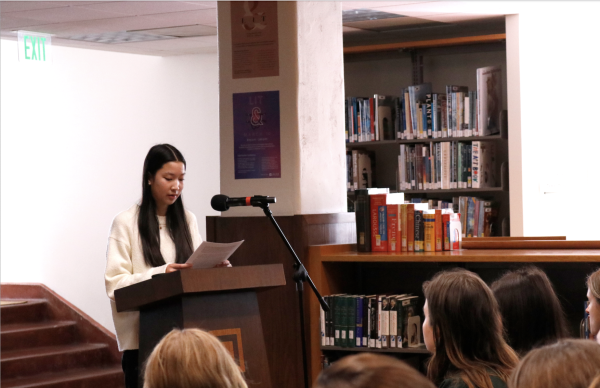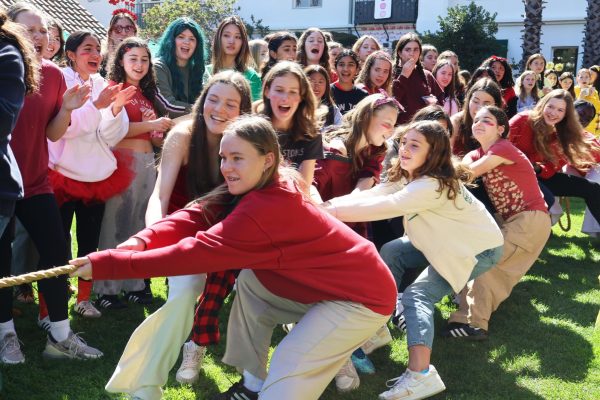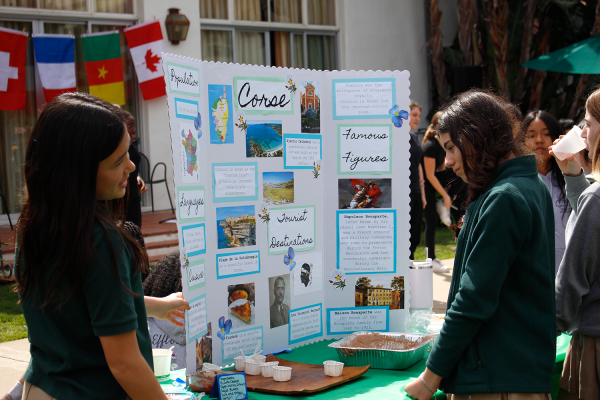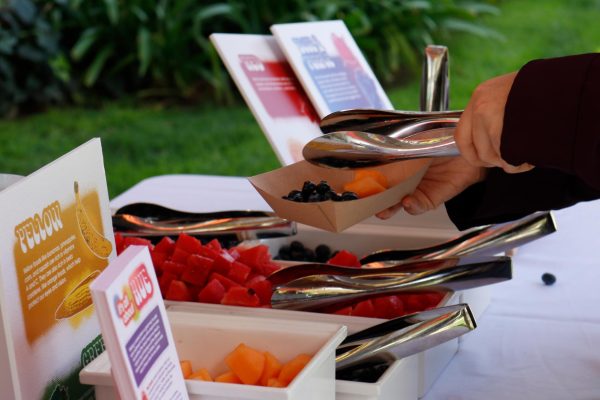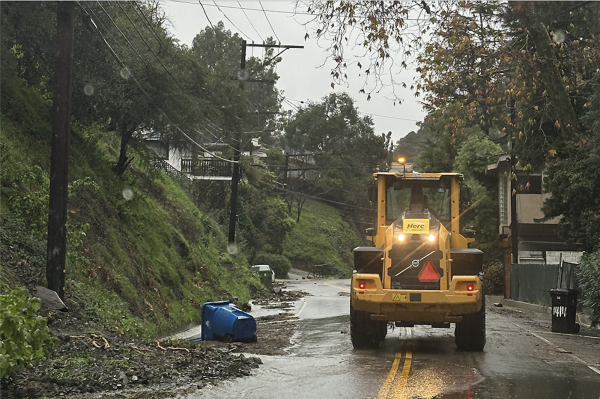Council for Sustainability prompts environmental discussion surrounding ‘I am Greta’ documentary
Photo credit: Paola Hoffman
This image is from the 2019 climate strike. “I think when it comes to being a young climate activist, there is so much bad news we have to grapple with daily,” Archer junior Paola Hoffman said. “What I remember about that strike was the overwhelming sense of hope at seeing so many other people who were right there with me. It really rejuvenates your will to keep fighting.”
December 6, 2020
As climate change accelerates, activists such as Greta Thunberg, Zeena Abdulkarim and many others continue to fight for environmental justice and change. In addition to these activists, there are many people that are protesting, spreading awareness and taking action to help the climate crisis. From eating a vegetarian diet to using bicycles and buses more often, many activists implement these habits into their daily lives to help limit climate change.
On Tuesday, Dec. 1 Archer’s Council for Sustainability (ACS) hosted a panel discussion that debriefed the “I am Greta” documentary about Thunberg’s fight for environmental justice and discussed ways in which the Archer community can get involved in the movement and combat climate change.
Casey Huff, a science and sustainability teacher at Archer, began the panel with questions for the audience.
“What can you do individually? What works for you? What ties into your passions, your interests and your talents?” Huff said. “We can inspire some of you to take action within your families [and explain] amazing ways to get involved at Archer, both right now while we are virtual and then also when it is safe to come back in person.”
There were five panelists who answered questions and discussed their own journeys in regards to climate change.
Danielle Becker, a Ph.D. student at the University of Rhode Island focuses on how climate change influences biological shifts in the coral population.
“There are ways that we can really change the trajectory,” Becker said. “So we aren’t at the point of no return, [but] we need to do things now and if we do them we can mediate the effects and make a better world for the future.”
Katherine Hannibal, a masters student at California State University, Northridge, is also a sustainability and science teacher at Archer and is interested in how humans affect and aid the spread of non-native species in near-shore environments.
“What I know for sure from my own research is that we have a changing environment,” Hannibal said.
Ben Hirschfeld, the founder and CEO of 3R Garden Design which “specializes in visually stunning, environmentally regenerative, high-producing, edible landscapes for both residential and commercial properties” is passionate about sustainability and urban gardening.
Katie Lemmon, a senior manager in the planning department of the Los Angeles Metro, works with the community on walking and biking projects that help people go to and from the metro stations and bus stops.
“I became interested in that [transportation planning] as a way to help people and their communities in their daily life,” Lemmon said. “It’s a problem that they might not always realize has such a wide-ranging impact on their lives.”
The final panelist, Alexandra Panos is an assistant professor of literacy studies and affiliate faculty of measurement and research at the University of South Florida. Panos has published many works on the climate crisis and the crucial role that social sciences and literacy play in solving and combatting the issue climate change.
“One thing that I find daunting still is the way that we consume information about big socio, scientific, and political problems like climate change is really complicated by online reading,” Panos said. “It is called motivated reading where we come to texts that we encounter online and in-person without own biases, making it really hard to communicate about science.”
All coming from different areas of study and expertise, Co-Presidents of ACS seniors Norah Adler and Ruby Horton, both said how “inspired” and “empowered” they felt after listening to all five panelists answering the questions.
“I learned so much than I even knew I would,” Horton said. “Even though we read the bios on all of the panelists we were still so impressed with how eloquent and informed their answers were.”
The panel concluded with an overarching question from Adler: “How can we help shift and spotlight and learn about and focus on topics of equity and help uplift BIPOC voices and activists?”





![Freshman Milan Earl and sophomore Lucy Kaplan sit with their grandparents at Archer’s annual Grandparents and Special Friends Day Friday, March 15. The event took place over three 75-minute sessions. “[I hope my grandparents] gain an understanding about what I do, Kaplan said, because I know they ask a lot of questions and can sort of see what I do in school and what the experience is like to be here.](https://archeroracle.org/wp-content/uploads/2024/03/grandparents-day-option-2-1200x800.jpg)













































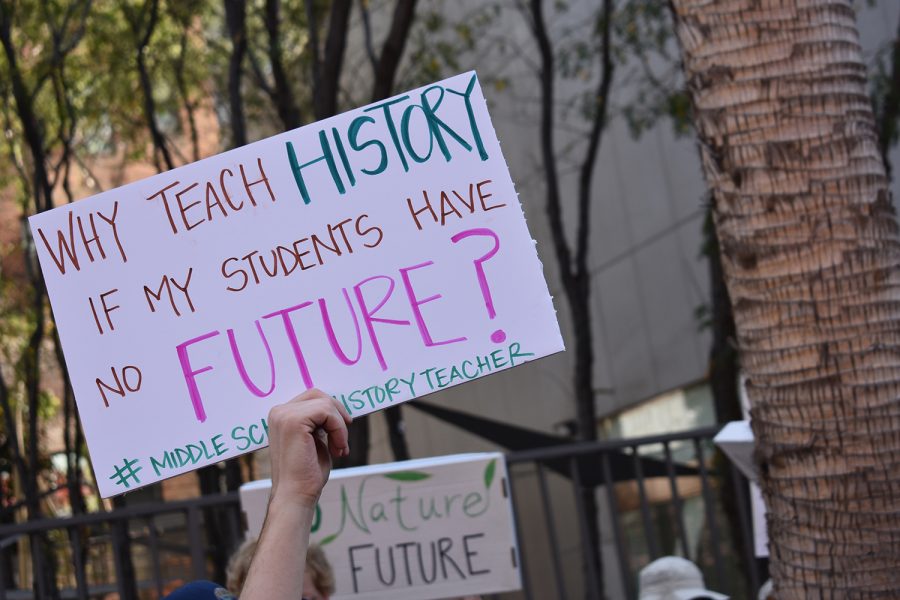
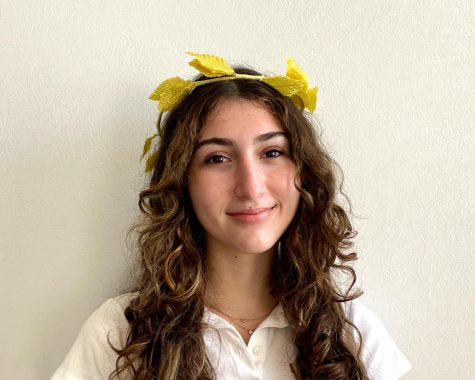






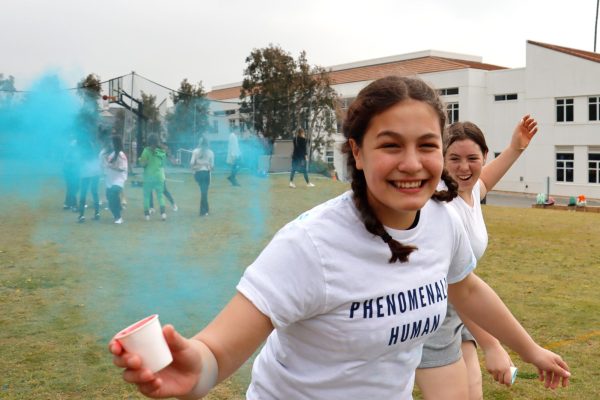
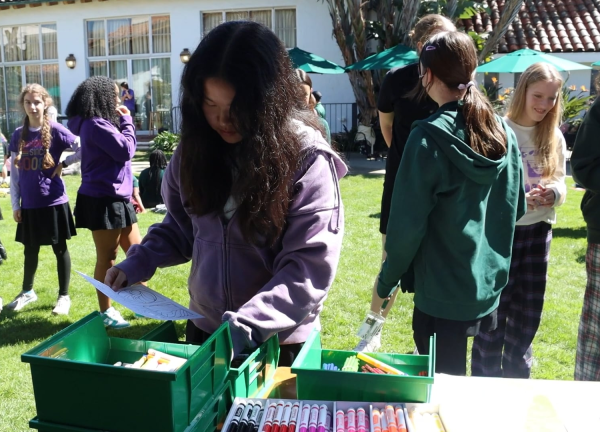
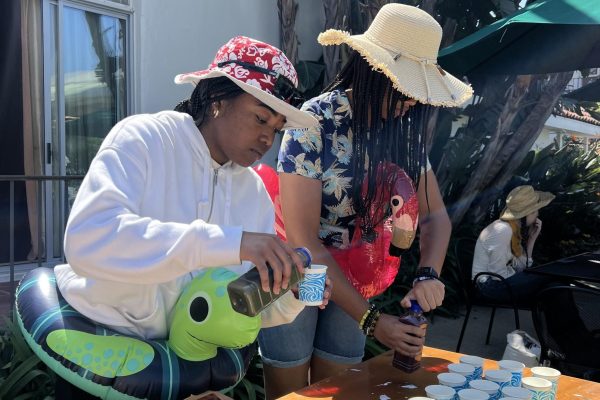
![Freshman Milan Earl and sophomore Lucy Kaplan sit with their grandparents at Archer’s annual Grandparents and Special Friends Day Friday, March 15. The event took place over three 75-minute sessions. “[I hope my grandparents] gain an understanding about what I do, Kaplan said, because I know they ask a lot of questions and can sort of see what I do in school and what the experience is like to be here.](https://archeroracle.org/wp-content/uploads/2024/03/grandparents-day-option-2-600x400.jpg)
